If you’re trying to figure out what keywords to go for, chances are you are going to take a look at some of your competitors to see what keywords they are ranking for. But if you don’t have access to professional and premium SEO tools, how do you find out this kind of information?
Here are five free tools to get you started in finding a variety of keywords being used by your competitors. These tools will help you see what keywords bring them traffic as well as other interesting details that can help your SEO campaign.
1. SEOmoz Term Extractor
To use this tool, you will need to register for a free account at SEOmoz. You will then have access to this tool as well as a variety of their other free SEO tools.
Once you’re logged in, head over to the SEO Tools section and choose the Term Extractor. Enter the URL of your competitor to receive one word, two work, and three word phrases the website is targeting as well as the HTML elements those terms are found in on the website.
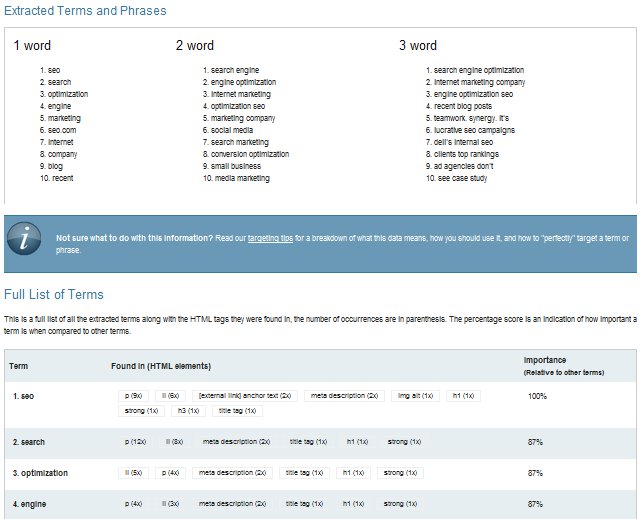
Needless to say, the bottom area is a good way to learn some on-site optimization tips as well!
2. Open Site Explorer
Open Site Explorer also falls under the SEOmoz tools umbrella, so once you’re logged in to SEOmoz, you have access to this as well. To use this tool for keyword ideas, enter the competitor’s URL and go to the Anchor Text Distribution tab.
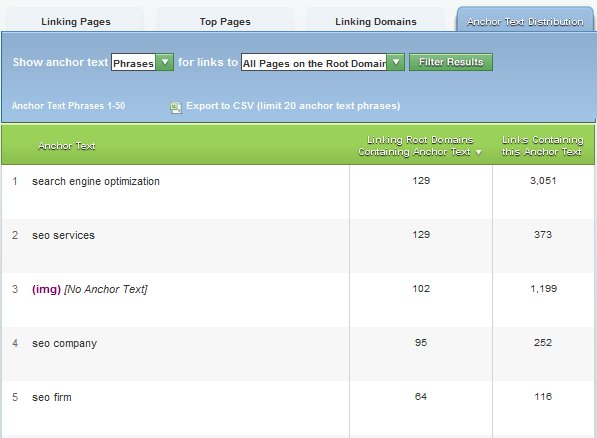
This will show you up to 20 of the keywords that your competitor uses for anchor text when link building, hence letting you know what they are targeting and how strong their link building campaign is with the number of root domains and links using that anchor text.
3. Google AdWords Keyword Tool
I know, I know, we all know about Google AdWords Keyword Tool. Usually I use the type in a word and let it make suggestions for me aspect, but for this exercise, I entered a domain to see what would happen.
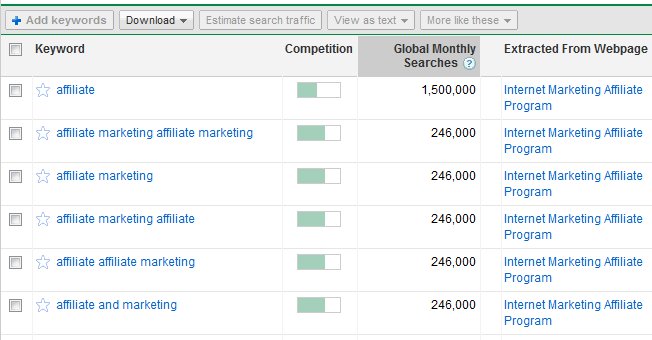
The key is to go to the Columns, and check Extracted From Webpage. Then you will find that if you entered domain.com, it focuses on a particular page from the domain, and not the domain homepage. So if there isn’t a domain.com/index.html or other similar type of page, you won’t get the homepage’s keyword suggestions. But for other specific pages on the site, you can pin down the keywords that AdWords recognizes from those
4. SEMRush
SEMRush allows you to enter a domain and view ten of the top keywords that the website ranks for organically, showing the keyword, position in search results, traffic percentage, and other useful information, especially if you are going to use CPC for your website.
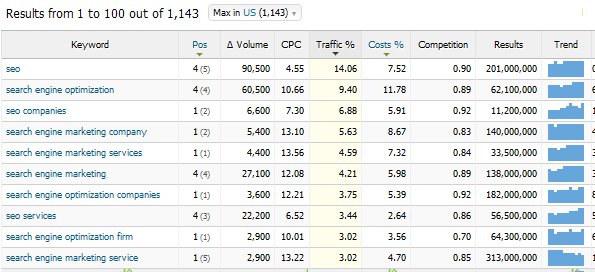
It also shows what URL on the site ranks for the specific keyword, but I removed that column to make the image fit in the space above.
5. Alexa
Aside from just giving you your traffic score, Alexa also gives you the chance to see keyword queries that bring a high percent of traffic to a particular URL. Just go to the Site Info tab and enter your competitor’s URL. Once you Get Details, go to the Search Analytics tab to see top queries driving traffic to the site, and keywords that are on the rise / decline.
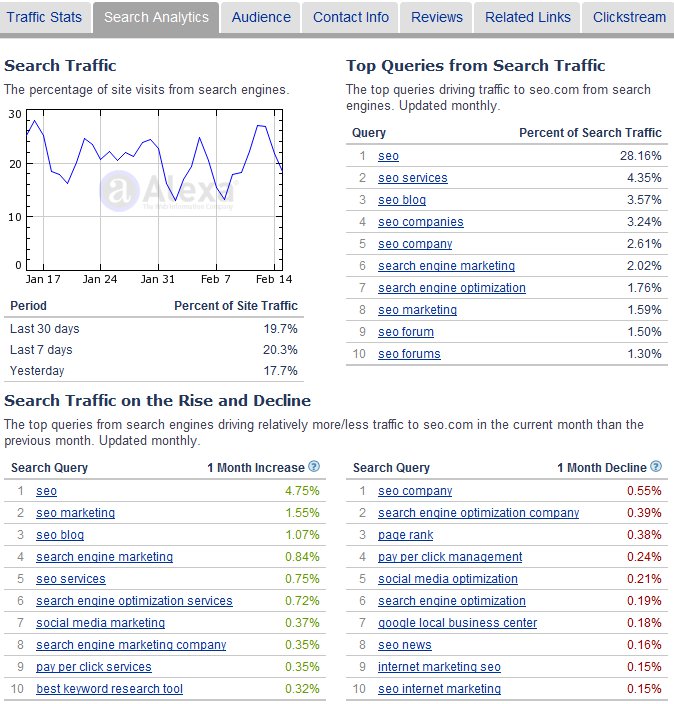
If you scroll down from here, you will also find lengthy lists of keyword phrases for high impact search queries for the URL, search engine marketing activity based on ads for particular keywords, and additional keyword opportunities that the competitor (or you) could pursue.
Your Free Tool Suggestions
And there you have it – some great (and free) keyword tools to use to see what your competitors are up to. What other freebie SEO tools would you suggest to further your competitor keyword research?
Check out the SEO Tools guide at Search Engine Journal.




